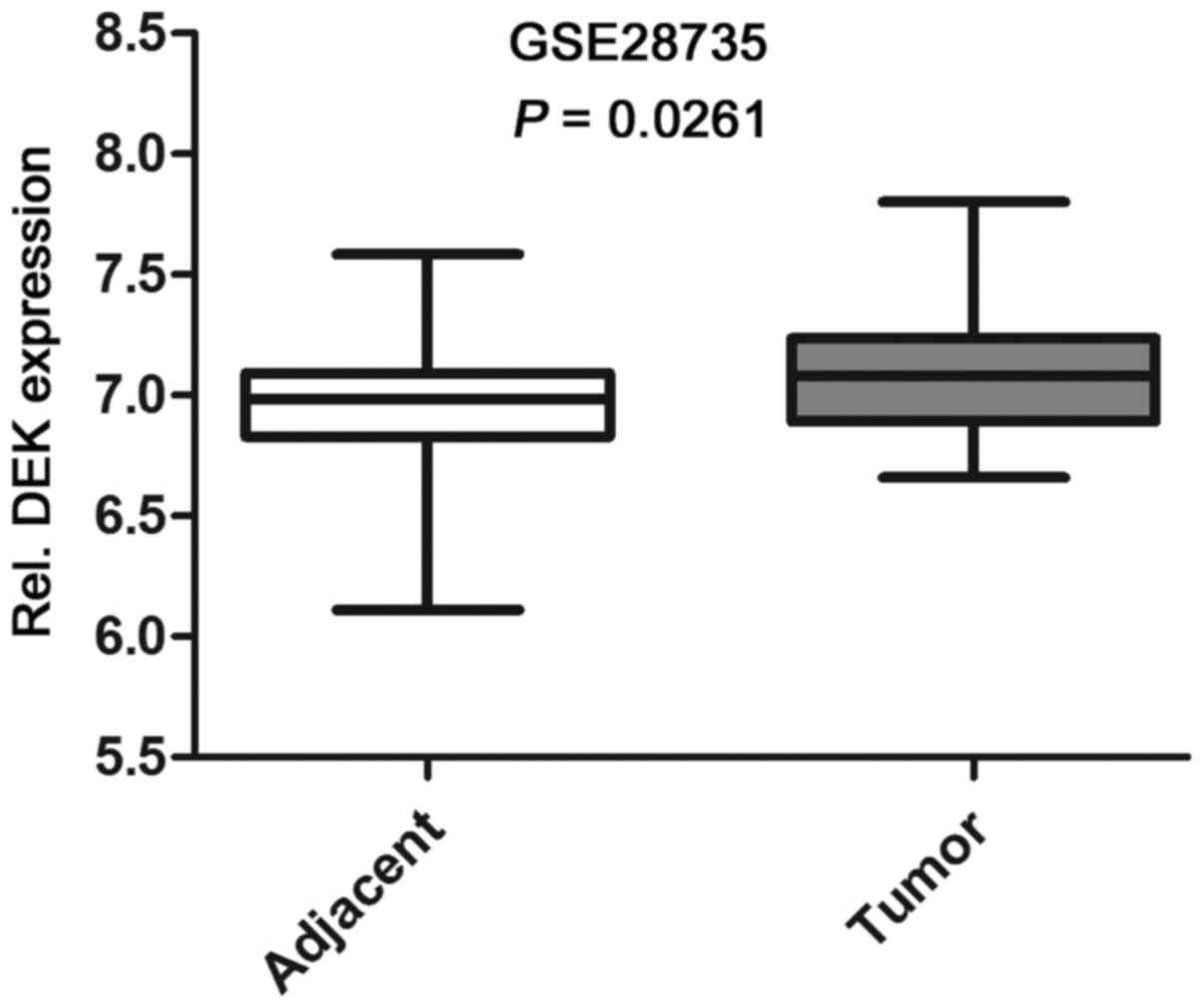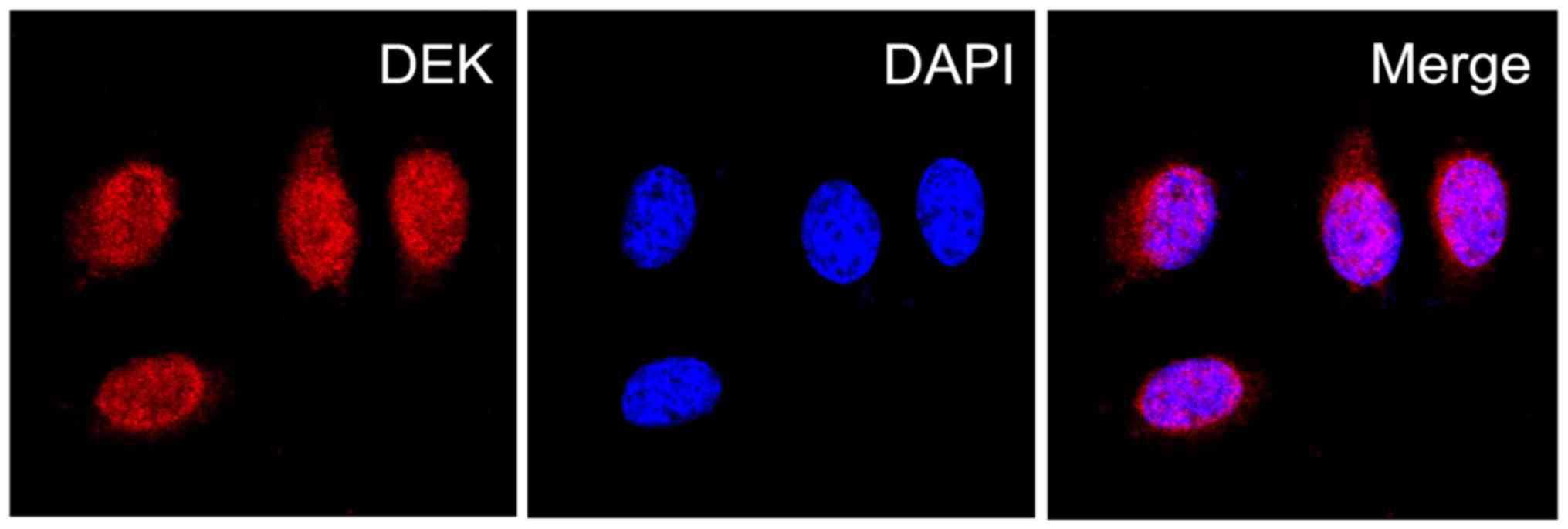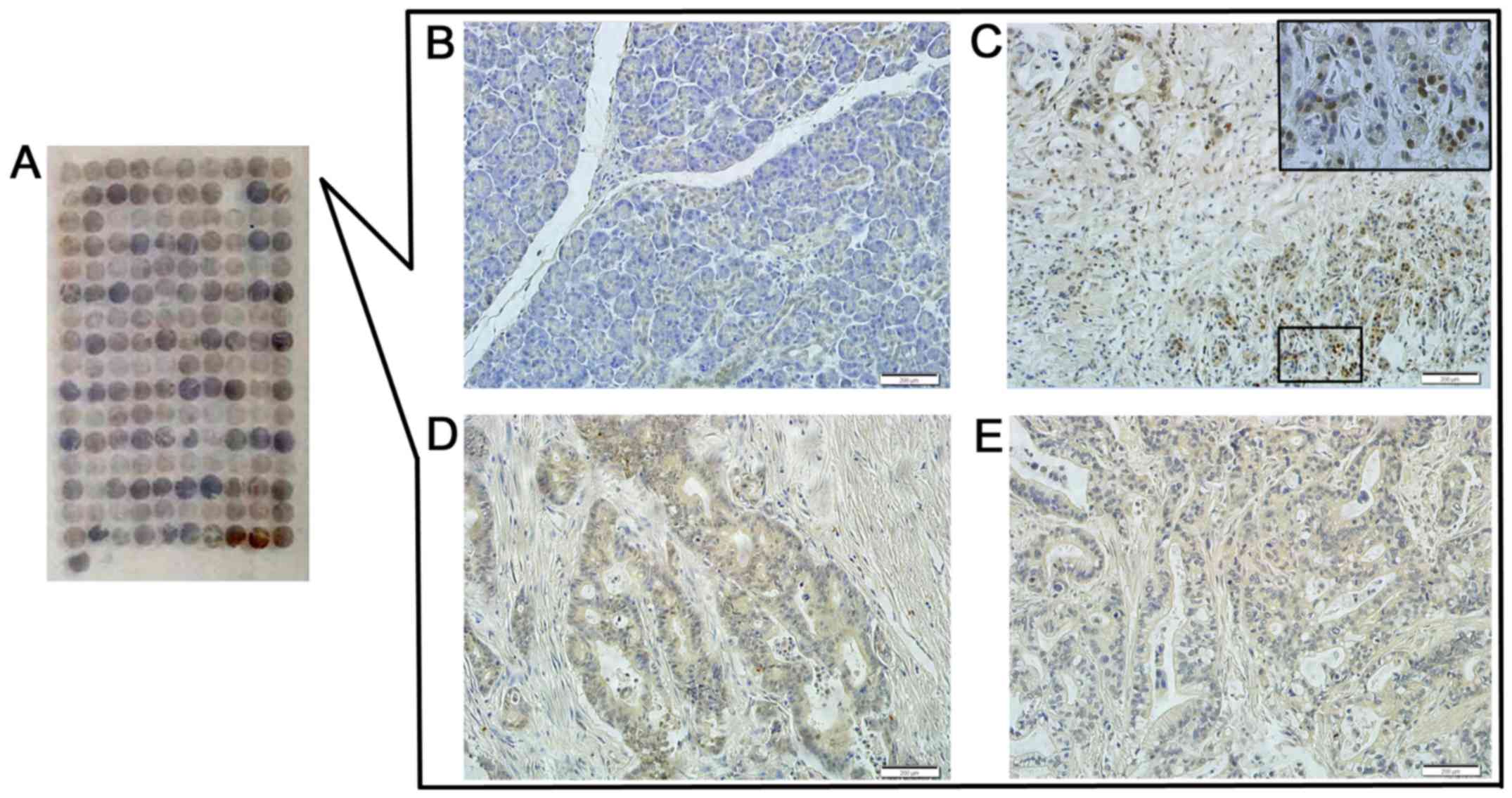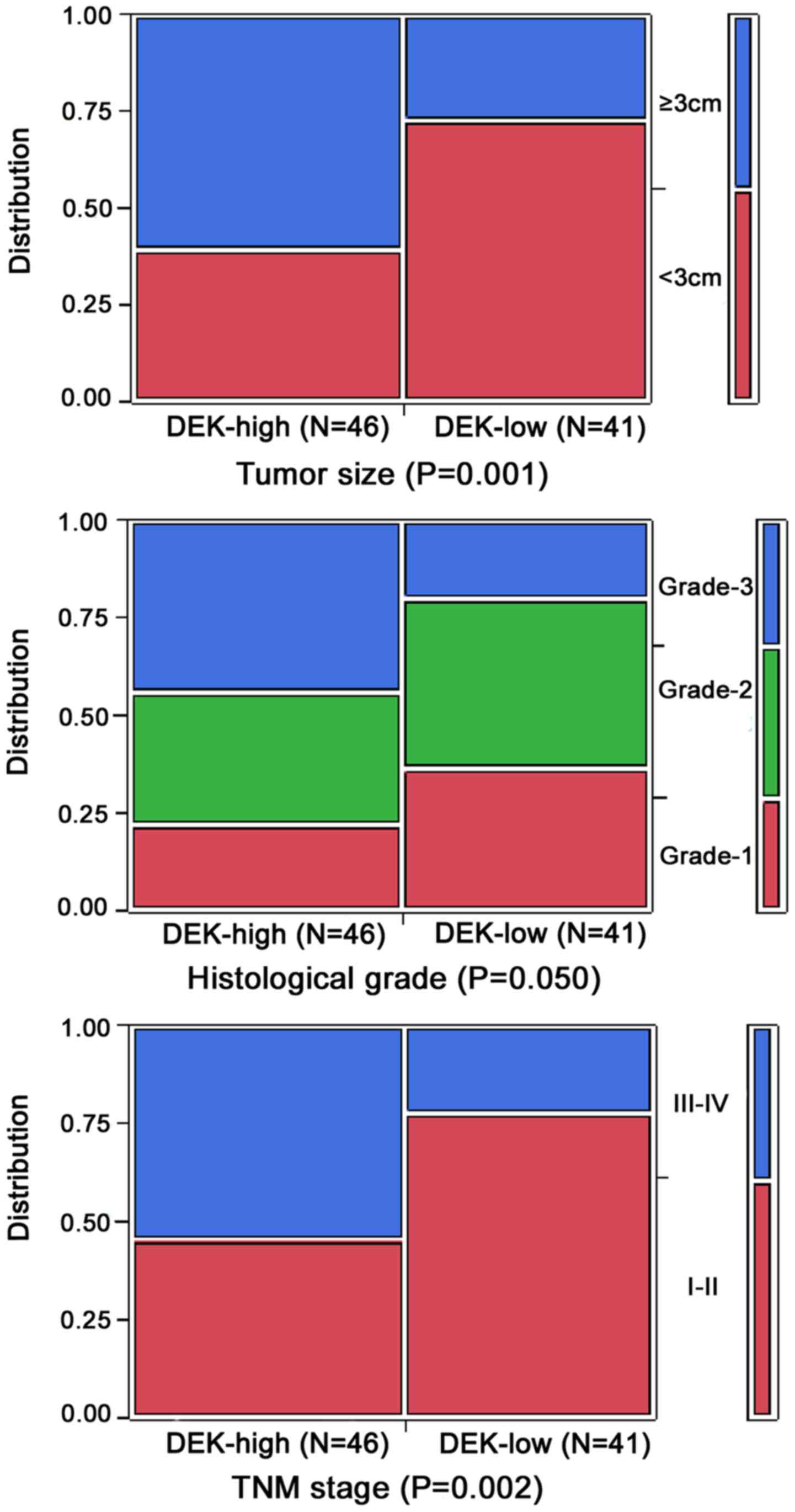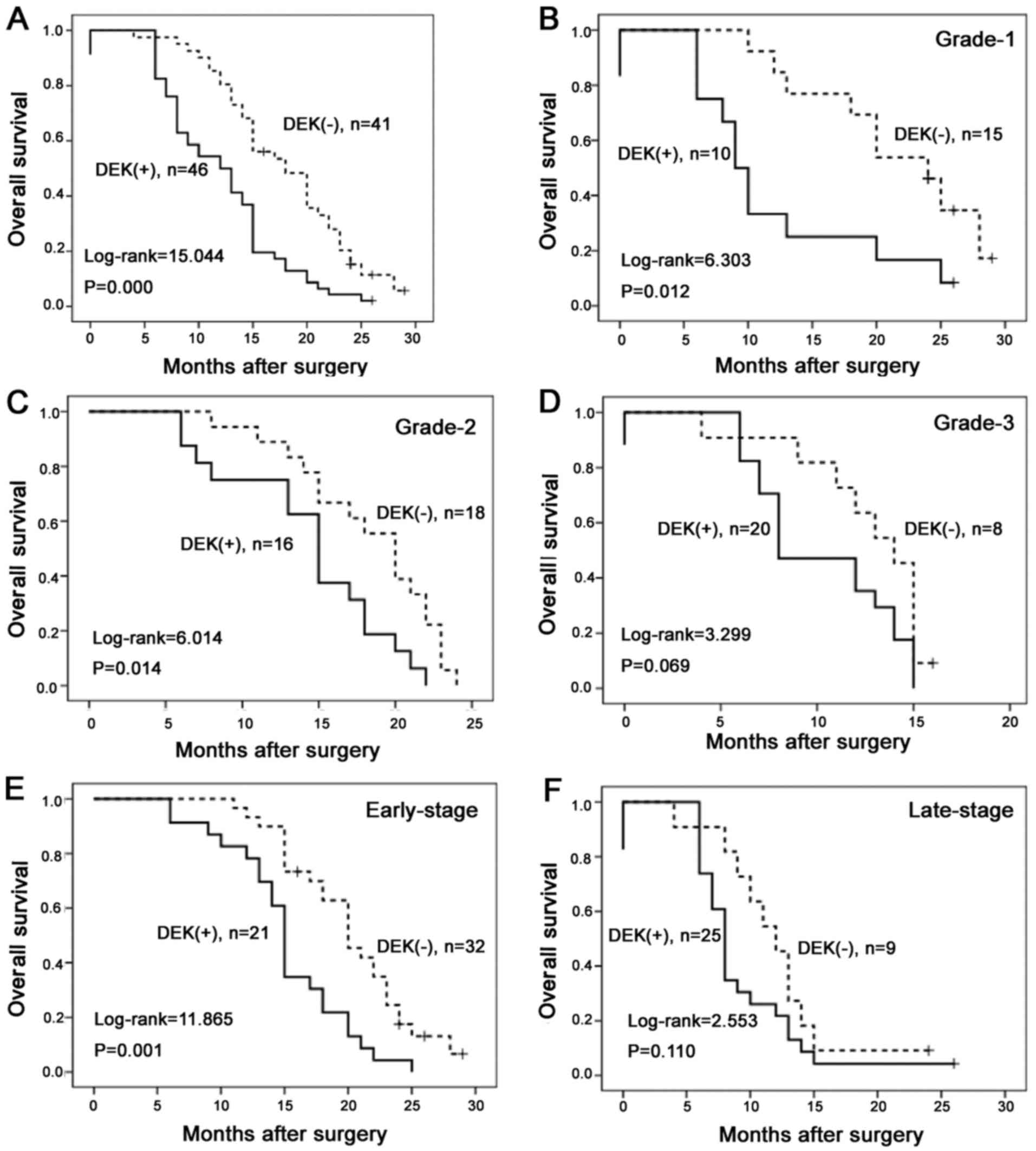|
1
|
Urayama S: Pancreatic cancer early
detection: Expanding higher-risk group with clinical and
metabolomics parameters. World J Gastroenterol. 21:1707–1717. 2015.
View Article : Google Scholar : PubMed/NCBI
|
|
2
|
Vernejoul F, Faure P, Benali N, Calise D,
Tiraby G, Pradayrol L, Susini C and Buscail L: Antitumor effect of
in vivo somatostatin receptor subtype 2 gene transfer in primary
and metastatic pancreatic cancer models. Cancer Res. 62:6124–6131.
2002.PubMed/NCBI
|
|
3
|
Recaldini C, Carrafiello G, Bertolotti E,
Angeretti MG and Fugazzola C: Contrast-enhanced ultrasonograpic
findings in pancreatic tumors. Int J Med Sci. 5:203–208. 2008.
View Article : Google Scholar : PubMed/NCBI
|
|
4
|
Stathis A and Moore MJ: Advanced
pancreatic carcinoma: Current treatment and future challenges. Nat
Rev Clin Oncol. 7:163–172. 2010. View Article : Google Scholar : PubMed/NCBI
|
|
5
|
Lee SH, Kim H, Hwang JH, Lee HS, Cho JY,
Yoon YS and Han HS: Breast cancer resistance protein expression is
associated with early recurrence and decreased survival in
resectable pancreatic cancer patients. Pathol Int. 62:167–175.
2012. View Article : Google Scholar : PubMed/NCBI
|
|
6
|
Liu K, Ji B, Zhang W, Liu S, Wang Y and
Liu Y: Comparison of iodine-125 seed implantation and
pancreaticoduodenectomy in the treatment of pancreatic cancer. Int
J Med Sci. 11:893–896. 2014. View Article : Google Scholar : PubMed/NCBI
|
|
7
|
Yamashita K, Miyamoto A, Hama N, Asaoka T,
Maeda S, Omiya H, Takami K, Doki Y, Mori M and Nakamori S: Survival
impact of pulmonary metastasis as recurrence of pancreatic ductal
adenocarcinoma. Dig Surg. 32:464–471. 2015. View Article : Google Scholar : PubMed/NCBI
|
|
8
|
Van den Broeck A, Vankelecom H, Van
Eijsden R, Govaere O and Topal B: Molecular markers associated with
outcome and metastasis in human pancreatic cancer. J Exp Clin
Cancer Res. 31:682012. View Article : Google Scholar : PubMed/NCBI
|
|
9
|
Niccolai E, Cappello P, Taddei A, Ricci F,
D'Elios MM, Benagiano M, Bechi P, Bencini L, Ringressi MN, Coratti
A, et al: Peripheral ENO1-specific T cells mirror the intratumoral
immune response and their presence is a potential prognostic factor
for pancreatic adenocarcinoma. Int J Oncol. 49:393–401.
2016.PubMed/NCBI
|
|
10
|
Ma C, Nong K, Wu B, Dong B, Bai Y, Zhu H,
Wang W, Huang X, Yuan Z and Ai K: miR-212 promotes pancreatic
cancer cell growth and invasion by targeting the hedgehog signaling
pathway receptor patched-1. J Exp Clin Cancer Res. 33:542014.
View Article : Google Scholar : PubMed/NCBI
|
|
11
|
von Lindern M, Fornerod M, van Baal S,
Jaegle M, de Wit T, Buijs A and Grosveld G: The translocation
(6;9), associated with a specific subtype of acute myeloid
leukemia, results in the fusion of two genes, dek and can, and the
expression of a chimeric, leukemia-specific dek-can mRNA. Mol Cell
Biol. 12:1687–1697. 1992. View Article : Google Scholar : PubMed/NCBI
|
|
12
|
Khodadoust MS, Verhaegen M, Kappes F,
Riveiro-Falkenbach E, Cigudosa JC, Kim DS, Chinnaiyan AM, Markovitz
DM and Soengas MS: Melanoma proliferation and chemoresistance
controlled by the DEK oncogene. Cancer Res. 69:6405–6413. 2009.
View Article : Google Scholar : PubMed/NCBI
|
|
13
|
Shibata T, Kokubu A, Miyamoto M, Hosoda F,
Gotoh M, Tsuta K, Asamura H, Matsuno Y, Kondo T, Imoto I, et al:
DEK oncoprotein regulates transcriptional modifiers and sustains
tumor initiation activity in high-grade neuroendocrine carcinoma of
the lung. Oncogene. 29:4671–4681. 2010. View Article : Google Scholar : PubMed/NCBI
|
|
14
|
Sammons M, Wan SS, Vogel NL, Mientjes EJ,
Grosveld G and Ashburner BP: Negative regulation of the RelA/p65
transactivation function by the product of the DEK proto-oncogene.
J Biol Chem. 281:26802–26812. 2006. View Article : Google Scholar : PubMed/NCBI
|
|
15
|
Gamble MJ and Fisher RP: SET and PARP1
remove DEK from chromatin to permit access by the transcription
machinery. Nat Struct Mol Biol. 14:548–555. 2007. View Article : Google Scholar : PubMed/NCBI
|
|
16
|
Wise-Draper TM, Morreale RJ, Morris TA,
Mintz-Cole RA, Hoskins EE, Balsitis SJ, Husseinzadeh N, Witte DP,
Wikenheiser- Brokamp KA, Lambert PF, et al: DEK proto-oncogene
expression interferes with the normal epithelial differentiation
program. Am J Pathol. 174:71–81. 2009. View Article : Google Scholar : PubMed/NCBI
|
|
17
|
Kappes F, Fahrer J, Khodadoust MS, Tabbert
A, Strasser C, Mor-Vaknin N, Moreno-Villanueva M, Bürkle A,
Markovitz DM and Ferrando-May E: DEK is a poly(ADP-ribose) acceptor
in apoptosis and mediates resistance to genotoxic stress. Mol Cell
Biol. 28:3245–3257. 2008. View Article : Google Scholar : PubMed/NCBI
|
|
18
|
Kroes RA, Jastrow A, McLone MG, Yamamoto
H, Colley P, Kersey DS, Yong VW, Mkrdichian E, Cerullo L, Leestma
J, et al: The identification of novel therapeutic targets for the
treatment of malignant brain tumors. Cancer Lett. 156:191–198.
2000. View Article : Google Scholar : PubMed/NCBI
|
|
19
|
von Lindern M, van Baal S, Wiegant J, Raap
A, Hagemeijer A and Grosveld G: can, a putative oncogene associated
with myeloid leukemogenesis, may be activated by fusion of its 3
half to different genes: Characterization of the set gene. Mol Cell
Biol. 12:3346–3355. 1992. View Article : Google Scholar : PubMed/NCBI
|
|
20
|
Sanchez-Carbayo M, Socci ND, Lozano JJ, Li
W, Charytonowicz E, Belbin TJ, Prystowsky MB, Ortiz AR, Childs G
and Cordon-Cardo C: Gene discovery in bladder cancer progression
using cDNA microarrays. Am J Pathol. 163:505–516. 2003. View Article : Google Scholar : PubMed/NCBI
|
|
21
|
Kondoh N, Wakatsuki T, Ryo A, Hada A,
Aihara T, Horiuchi S, Goseki N, Matsubara O, Takenaka K, Shichita
M, et al: Identification and characterization of genes associated
with human hepatocellular carcinogenesis. Cancer Res. 59:4990–4996.
1999.PubMed/NCBI
|
|
22
|
Lin L, Piao J, Gao W, Piao Y, Jin G, Ma Y,
Li J and Lin Z: DEK over expression as an independent biomarker for
poor prognosis in colorectal cancer. BMC Cancer. 13:3662013.
View Article : Google Scholar : PubMed/NCBI
|
|
23
|
Liu S, Wang X, Sun F, Kong J, Li Z and Lin
Z: DEK overexpression is correlated with the clinical features of
breast cancer. Pathol Int. 62:176–181. 2012. View Article : Google Scholar : PubMed/NCBI
|
|
24
|
Piao J, Shang Y, Liu S, Piao Y, Cui X, Li
Y and Lin Z: High expression of DEK predicts poor prognosis of
gastric adenocarcinoma. Diagn Pathol. 9:672014. View Article : Google Scholar : PubMed/NCBI
|
|
25
|
Chatterjee D, Katz MH, Rashid A, Wang H,
Iuga AC, Varadhachary GR, Wolff RA, Lee JE, Pisters PW, Crane CH,
et al: Perineural and intraneural invasion in posttherapy
pancreaticoduodenectomy specimens predicts poor prognosis in
patients with pancreatic ductal adenocarcinoma. Am J Surg Pathol.
36:409–417. 2012. View Article : Google Scholar : PubMed/NCBI
|
|
26
|
Zhou HY, Wang Y, Zhang J, Ruan CP, Wang
WJ, Sun YP and Hu ZQ: Retrograde vs conventional dissection
technique in pancreaticoduodenectomy: A pilot study. JAMA Surg.
149:604–607. 2014. View Article : Google Scholar : PubMed/NCBI
|
|
27
|
Vinnedge LM Privette, Kappes F, Nassar N
and Wells SI: Stacking the DEK: From chromatin topology to cancer
stem cells. Cell Cycle. 12:51–66. 2013. View Article : Google Scholar : PubMed/NCBI
|
|
28
|
Pease NA, Wise-Draper T and Vinnedge L
Privette: Dissecting the potential interplay of DEK functions in
inflammation and cancer. J Oncol. 2015:1065172015. View Article : Google Scholar : PubMed/NCBI
|
|
29
|
Kappes F, Damoc C, Knippers R, Przybylski
M, Pinna LA and Gruss C: Phosphorylation by protein kinase CK2
changes the DNA binding properties of the human chromatin protein
DEK. Mol Cell Biol. 24:6011–6020. 2004. View Article : Google Scholar : PubMed/NCBI
|
|
30
|
Sawatsubashi S, Murata T, Lim J, Fujiki R,
Ito S, Suzuki E, Tanabe M, Zhao Y, Kimura S, Fujiyama S, et al: A
histone chaperone, DEK, transcriptionally coactivates a nuclear
receptor. Genes Dev. 24:159–170. 2010. View Article : Google Scholar : PubMed/NCBI
|
|
31
|
Sandén C, Järvstråt L, Lennartsson A,
Brattås PL, Nilsson B and Gullberg U: The DEK oncoprotein binds to
highly and ubiquitously expressed genes with a dual role in their
transcriptional regulation. Mol Cancer. 13:2152014. View Article : Google Scholar : PubMed/NCBI
|
|
32
|
Vinnedge LM Privette, McClaine R, Wagh PK,
Wikenheiser-Brokamp KA, Waltz SE and Wells SI: The human DEK
oncogene stimulates β-catenin signaling, invasion and mammosphere
formation in breast cancer. Oncogene. 30:2741–2752. 2011.
View Article : Google Scholar : PubMed/NCBI
|
|
33
|
Vinnedge LM Privette, Benight NM, Wagh PK,
Pease NA, Nashu MA, Serrano-Lopez J, Adams AK, Cancelas JA, Waltz
SE and Wells SI: The DEK oncogene promotes cellular proliferation
through paracrine Wnt signaling in Ron receptor-positive breast
cancers. Oncogene. 34:2325–2336. 2015. View Article : Google Scholar : PubMed/NCBI
|
|
34
|
Adams AK, Bolanos LC, Dexheimer PJ, Karns
RA, Aronow BJ, Komurov K, Jegga AG, Casper KA, Patil YJ, Wilson KM,
et al: IRAK1 is a novel DEK transcriptional target and is essential
for head and neck cancer cell survival. Oncotarget. 6:43395–43407.
2015.PubMed/NCBI
|
|
35
|
Datta A, Adelson ME, Mogilevkin Y,
Mordechai E, Sidi AA and Trama JP: Oncoprotein DEK as a tissue and
urinary biomarker for bladder cancer. BMC Cancer. 11:2342011.
View Article : Google Scholar : PubMed/NCBI
|
|
36
|
Liu X, Qi D, Qi J, Mao Z, Li X, Zhang J,
Li J and Gao W: Significance of DEK overexpression for the
prognostic evaluation of non-small cell lung carcinoma. Oncol Rep.
35:155–162. 2016.PubMed/NCBI
|















